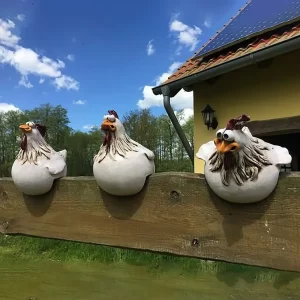In a world filled with complexity, chaos, and constant demands, the pursuit of peace of mind can often feel like an elusive goal. However, there is a powerful antidote to this modern predicament – the art of simplistic living. By consciously simplifying different aspects of our lives, we can unlock a profound sense of inner calm, clarity, and contentment. This article delves into the transformative effects of embracing simplicity and offers practical insights and strategies to achieve peace of mind through decluttering our physical spaces, calming our minds, nurturing healthy relationships, adopting mindful consumption habits, reconnecting with nature, and cultivating gratitude and mindfulness. Join us on this journey to discover the incredible peace of mind that comes through simplistic living.
Understanding the Concept of Simplistic Living
Simplistic living is a mindset and lifestyle choice that focuses on prioritizing what truly matters and eliminating unnecessary complexities. It involves decluttering not only our physical surroundings but also our mental and emotional spaces. By consciously shifting our attention to the essentials and letting go of excess baggage, we can create room for clarity, purpose, and peace.
The Impact of Complexity on Mental Well-being
Living in a world filled with constant stimuli and demands can take a toll on our mental well-being. The more we accumulate material possessions, responsibilities, and commitments, the harder it becomes to find peace of mind. Our minds become cluttered, overwhelmed, and unable to fully focus on what truly matters. By simplifying our lives, we can reduce stress, anxiety, and the feeling of being constantly pulled in different directions.
2. Embracing Minimalism: Simplifying Your Environment for Inner Calm
When we think of simplistic living, one aspect that immediately comes to mind is minimalism – the art of living with less. Creating a clutter-free environment can have a profound effect on our inner calm and overall well-being.
Recognizing the Benefits of a Clutter-free Space
A clutter-free space not only looks visually appealing but also has numerous benefits for our mental state. It promotes clarity, reduces distractions, and allows us to fully engage with our surroundings. A minimalist environment creates a sense of calm and order, providing a sanctuary where we can escape the chaos of the outside world and find solace.
Practical Steps to Decluttering and Organizing Your Home
Decluttering and organizing your home may sound like a daunting task, but it can be achieved with some practical steps. Start by sorting through your belongings and letting go of items that no longer serve a purpose or bring you joy. Adopting a more mindful approach to consumption can also prevent unnecessary accumulation in the future. By creating functional spaces that are free from unnecessary clutter, you will not only experience a physical transformation but also a mental one.
3. Decluttering the Mind: Simplifying Thoughts and Mental Space
While simplifying our physical environment is essential, achieving peace of mind also requires decluttering our thoughts and mental space.
The Connection Between Mental Clutter and Stress
Just as physical clutter can overwhelm us, mental clutter can have a similar effect on our well-being. Constant rumination, worries, and a never-ending to-do list can cause stress and prevent us from enjoying the present moment. Simplifying our thoughts involves acknowledging and addressing the mental clutter that weighs us down.
Strategies for Simplifying Thoughts and Achieving Mental Clarity
To simplify our thoughts, we can practice mindfulness, journaling, and prioritizing. Mindfulness helps us become aware of our thoughts and allows us to let go of the ones that do not serve us. Journaling provides an outlet for our thoughts, allowing us to gain perspective and clarity. Prioritizing involves identifying what truly matters and focusing our mental energy on those aspects, rather than getting caught up in trivial matters. By simplifying our thoughts, we create space for mental clarity and a more peaceful state of mind.
4. Finding Balance: Simplifying Relationships and Social Commitments
In our pursuit of simplicity and peace of mind, it is crucial to address our relationships and social commitments.
The Importance of Setting Boundaries in Relationships
Setting boundaries in relationships is key to maintaining a healthy balance. It involves recognizing our own needs and limits and communicating them effectively to others. By setting boundaries, we avoid becoming overwhelmed or resentful, allowing for healthier and more fulfilling connections.
Letting Go of Toxic Relationships and Focusing on Quality Connections
Simplifying our relationships also means letting go of toxic ones that drain our energy and contribute to negativity. Surrounding ourselves with people who support and uplift us is vital for our peace of mind. By focusing on quality connections rather than a large social circle, we can foster deeper and more meaningful relationships.
In conclusion, achieving peace of mind through simplistic living involves embracing minimalism, decluttering our physical and mental spaces, and simplifying our relationships. By intentionally simplifying our lives and focusing on what truly matters, we can create the space and clarity needed to find inner calm and enjoy a more balanced and fulfilling existence. So, let’s embrace the power of simplicity, declutter our lives, and unlock the peace of mind we all deserve.
5. Mindful Consumption: Simplifying Materialism and Finding Contentment
The Pitfalls of Consumerism and Materialistic Mindset
In a world driven by advertisements and the constant pursuit of more, it’s easy to get caught up in consumerism and a materialistic mindset. We are bombarded with messages that tell us our happiness is directly linked to what we own. But the truth is, material possessions can only bring temporary satisfaction, leaving us constantly chasing the next shiny thing.
Cultivating a Mindful Approach to Consumption and Nurturing Contentment
Simplifying our lives and embracing a more mindful approach to consumption can lead to greater contentment and peace of mind. By focusing on what truly brings value and joy to our lives, we can break free from the never-ending cycle of accumulating stuff. It’s about being intentional with our choices, considering the environmental impact, and investing in experiences and relationships rather than material possessions. By doing so, we can find contentment in the present moment and free ourselves from the burden of excess.
6. Reconnecting with Nature: Simplifying and Cultivating a Sense of Serenity
Rediscovering the Healing Power of Nature
In the midst of our fast-paced, technology-driven lives, reconnecting with nature can provide a much-needed sense of serenity and peace. The beauty of the natural world has a way of grounding us and reminding us of what truly matters. Whether it’s a walk in the park, a hike in the mountains, or simply sitting under a tree, spending time in nature can be a powerful antidote to the stresses of modern life.
Ways to Simplify Your Outdoor Experience and Enhance Inner Peace
Simplifying our outdoor experiences can further enhance the peace we find in nature. Leave behind the distractions of smartphones and social media, and instead, focus on being present in the moment. Take the time to notice the little things – the sound of birds chirping, the feel of the breeze on your skin, the vibrant colors of flowers. Embrace the simplicity of nature and allow it to nourish your soul.
7. Cultivating Gratitude and Mindfulness: Simple Practices for Inner Peace
The Transformative Effects of Gratitude and Mindfulness
Gratitude and mindfulness are powerful tools for cultivating inner peace. By shifting our focus to what we have instead of what we lack, we can foster a sense of contentment and appreciation for the present moment. Mindfulness, on the other hand, helps us to be fully present and aware of our thoughts, feelings, and surroundings without judgment. These practices can help us find peace and joy in the simplest of things.
Daily Rituals to Cultivate Gratitude and Mindfulness in Life
Incorporating gratitude and mindfulness into our daily lives doesn’t have to be complicated. It can be as simple as keeping a gratitude journal, taking a few moments each day to reflect on what we are grateful for, or practicing mindfulness during everyday activities like eating or walking. By making these practices a habit, we can train our minds to focus on the present moment and find peace in the midst of the chaos.
8. Conclusion: Embracing the Journey to Simplicity and Discovering Lasting Peace of Mind
In a world that values complexity and constant consumption, embracing simplicity can be a radical act of self-care. By simplifying our materialistic desires, reconnecting with nature, and cultivating gratitude and mindfulness, we can discover a lasting peace of mind that surpasses fleeting material possessions. It’s a journey worth embarking on, as it leads us to a more meaningful and fulfilling life. So let’s dare to prioritize peace over chaos, simplicity over clutter, and find solace in the beauty of a simpler existence.
Conclusion: Embracing the Journey to Simplicity and Discovering Lasting Peace of Mind
In a world that often glorifies complexity and busyness, finding peace of mind can seem like an unattainable feat. Yet, as we have explored throughout this article, the path to tranquility lies in embracing simplicity. By decluttering our physical spaces, streamlining our thoughts, nurturing meaningful relationships, adopting mindful consumption practices, reconnecting with nature, and cultivating gratitude and mindfulness, we can unlock the transformative power of simplicity. Let us embark on this journey together, embracing the beauty of a simpler life and discovering the lasting peace of mind that awaits us.
FAQ
1. Is simplistic living the same as minimalism?
No, while minimalism is a popular aspect of simplistic living, it is not the only component. Simplistic living encompasses a broader philosophy focused on reducing complexity, decluttering, and finding balance in various aspects of life, including physical possessions, mental space, relationships, and consumption habits.
2. Can simplifying my environment really bring peace of mind?
Absolutely! Our physical environment has a profound impact on our mental well-being. By decluttering and organizing our space, we create a serene and harmonious atmosphere that can reduce stress, increase productivity, and promote a sense of calm and clarity.
3. How can I simplify my relationships without hurting others?
Simplifying relationships is about setting healthy boundaries and focusing on quality connections. It involves letting go of toxic relationships that drain your energy and investing time and energy in nurturing meaningful connections. Communication, honesty, and prioritizing self-care are essential in this process.
4. Do I have to give up material possessions to embrace simplistic living?
Embracing simplicity does not necessarily mean giving up all material possessions. It’s about adopting a mindful approach to consumption, avoiding excessive accumulation, and finding contentment in what you have. It’s about being intentional with your belongings and ensuring they align with your values and bring you joy.



